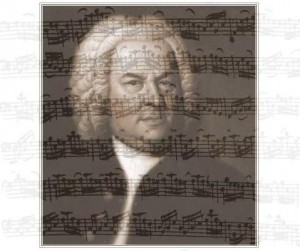SUITE SUCCESS
3M3:W
1M: cellist
“I did not know of their existence, and no one had ever mentioned them to me. It was the great revelation of my life. I immediately felt that this was something of exceptional importance, and hugged my treasure all the way home. I started playing them in a state of indescribable excitement. For 12 years I studied and worked at them every day, and I was nearly 25 before I had the courage to play one of them in public. Before I did, no violinist or cellist had ever played a Suite in its entirety. In those days these compositions were thought of as cold and academic. How could anyone think of Bach as ‘cold,’ when these Suites seem to shine with the most glittering kind of poetry?”
Pablo Casals on discovering the six Bach suites for cello, age 13
How is it possible that J.S. Bach’s six suites for unaccompanied cello have not only become a mainstay of modern cellists’ repertoire, but have achieved a near universal appeal? It’s this “success” that led me to write this whimsy.
Audiences and cellists certainly took their time to find the six suites’ beauty. Composed in the 1720s, they remained unplayed, nearly unknown for 150 years. It was not until the great Spaniard Pablo Casals uncovered them and realized he had hit pure gold. Casals was 13, studying in Barcelona, and in search of new music to play at Señor Tost’s café. Casals played popular music several times a week but one evening was set aside for classical music. At the harbor, as he rummaged through second-hand shops, he discovered on a dusty shelf, next to the fresh catch of the day, the suites.
The suites are anthropomorphized: six brothers and sisters with distinct personalities! They have some serious psychological problems—ignored for nearly two centuries and now with a fame and fortune some find hard to handle. Sibling rivalries: certain of them played and recorded more than others. Suite #5, Fugue, has a serious medical condition—a fugue state (he arrives very late in the show); and Suite #4, Sharpie, is the only suite written in flats. E-flat—Sharpie—three flats—get it? It’s a romp, a whimsy, but some serious musings along the way on musical creation, recognition, Papa Bach and Don Pablo, and our unsung hero—the superb cellist that inspired Bach to write these six unsurpassed works. Dear brothers and sister suites: I love you all equally.
Music: Bach Suites for Solo Cello

